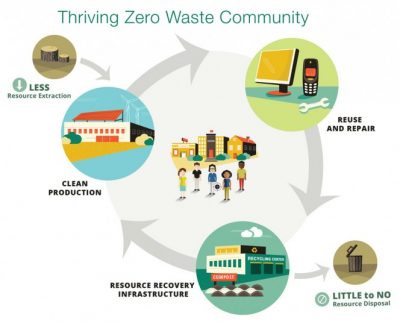Building zero waste society

Zero Waste is a buzzword everywhere, and people from different sectors of society are trying to embrace it. It happened through social media which made sustainability look fashionable. On the
contrary, our need of the hour is to be conscious and responsible for resource spending.
Zero Waste International Alliance has defined zero waste in simple words, i.e., conserve all
resources using responsible production, consumption, reuse and, recovery of all products,
packaging, and materials, without burning them and without discharges to land, water, or air that
threaten the environment or human health.
According to the Ministry of Housing and Urban Affairs, Government of India, urban India produces
about 42.0 million tons of municipal solid waste annually, i.e. 1.15 lakh metric tons per day (TPD),
out of which 83,378 TPD is generated in 423 Class-I cities. Waste generated in 423 Class-I cities
works out to 72.5 per cent of the total waste generated each day. These troubling figures should be
enough to make us more environmentally mindful.
However, waste is not unavoidable as we have frequently been led to believe; rather, it is the
outcome of a system that is linear and inefficient and wastes resources that could be conserved. The
pandemic made us realize what a huge impact we are doing on our surroundings when all the
major human activities stop. There was news all around about how the water and air quality have
improved. But at the same time, our solid waste was increasing resulting in a dumpster fire and also
adding to higher financial costs.
Zero waste is a waste management strategy that emphasizes waste reduction and material
recovery. To encourage the redesign of products and delivery systems and to expand access to
reuse, repair, recycling, and composting, strategies include regulatory interventions and corporate
support. The ultimate goal is to have a circular economy with zero waste generation.
The economy can be revitalized by implementing zero-waste systems at the private and
government level. This will create jobs, save money and improve the quality of life of countless
people. The pandemic’s disruption of global supply chains has shown that through zero waste how
crucial zero-waste practices are to local economic resilience and stability. As we recover from the pandemic our focus is to build healthy economies around the world.
Saloni Goyal, Account Executive, VeKommunicate
